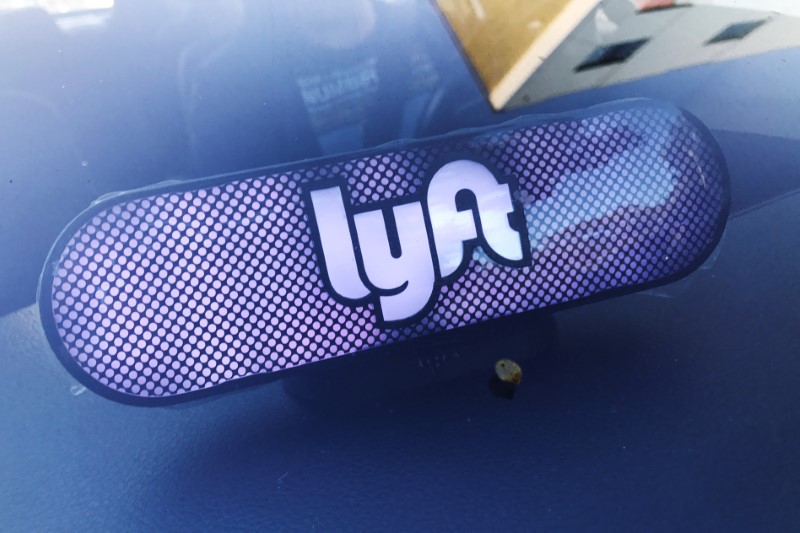
An illuminated sign appears in a Lyft ride-hailing car in Los Angeles, California, U.S. September 21, 2017. REUTERS/Chris Helgren
August 21, 2018
By Heather Somerville
SAN FRANCISCO (Reuters) – Lyft has completed more than 5,000 self-driving rides through its ride-hailing app, the company said on Tuesday, as it aims to become a serious competitor in autonomous driving while its biggest rival, Uber, retrenches.
Lyft launched its self-driving service in January in Las Vegas, where passengers can take a ride in an autonomous BMW to and from some 20 different pick-up and destination spots around the city’s casino-laden Strip. The autonomous driving system is not built by Lyft, however, but by high-tech auto-parts supplier Aptiv Plc <APTV.N>, which Lyft partnered with earlier this year.
Lyft is developing its own self-driving system, but company officials have declined to say when it will be ready for public streets. Lyft is far behind competitors such as Alphabet Inc’s <GOOGL.O> Waymo, which has been testing autonomous cars for about a decade.
The Las Vegas service is available to all Lyft passengers, who get a prompt asking if they agree to ride in a self-driving car. If their destination is along one of the approved routes, they may get picked up by a robot car. Two safety drivers are in the front seats.
Lyft and Aptiv declined to provide financial details on the service, which costs passengers the same as a Lyft ride in a human-driven car, but both companies “are making money on this,” said Jody Kelman, product lead for Lyft’s self-driving platform.
Aptiv has a fleet of 75 self-driving cars in Las Vegas, 20 of which are picking up Lyft passengers. The company is a spin-off of Delphi Automotive Plc, which last year acquired self-driving startup NuTonomy, which is also testing self-driving cars in Singapore and Boston. Aptiv and NuTonomy are working to integrate their systems.
Lyft has several partnerships in the self-driving space, but the deal with Aptiv is the only one so far to result in rides for the public. Lyft was late to self-driving cars, announcing just more than a year ago plans for an autonomous driving development center in Silicon Valley.
Lyft’s chief rival, Uber Technologies Inc [UBER.UL], has meanwhile retrenched from its self-driving ambitions. Following a fatal accident in March in Arizona, in which an Uber SUV operating in self-driving mode killed a pedestrian, Uber suspended its self-driving testing and shuttered its operations in Arizona, its chief testing ground.
Uber has not yet reintroduced its self-driving cars in Pittsburgh, Pennsylvania, as it said it would by this summer. And last month, Uber ended its work on self-driving trucks.
(Reporting by Heather Somerville; editing by Richard Pullin)

